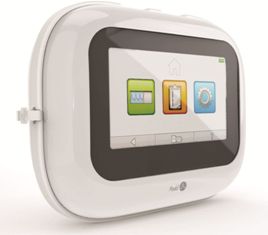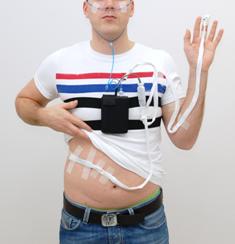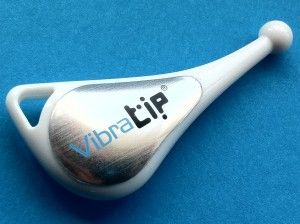Innovative diagnostic devices win NHS Smart Solutions competition
11 August 2011
A cardiovascular screening system that uses retinal images, new devices to detect blocked leg arteries and neuropathy in diabetics, and a service which uses a monitoring device to diagnose sleep apnoea in patients’ own homes, are the winners of an NHS competition to find new ways to combat long-term conditions.
The four were amongst 50 entrants from around the world in the Smart Solutions for Healthcare competition, which aims to find better, more cost-effective approaches to diagnosis and treatment for patients with cardiovascular disease and long term conditions. All four will now undergo evaluation at healthcare sites in North West England.
iGrading CVD software from Medalytix in Liverpool offers a new way to assess people’s risk of cardiovascular disease based on a simple retinal image which is analysed using automated algorithms. It does not require specialist staff and provides almost instant results. Medalytix suggests it could cut the cost of the government’s Health Check screening programme for over-40s by up to 35%.
The Padd device from Dialog Devices in Loughborough detects peripheral arterial disease (PAD) by using infra-red light to assess blood volume changes in the foot before and after raising the leg. Padd offers a rapid and simple way to detect and monitor PAD in a primary care setting and, unlike tests in current use, is reliable for use on diabetics.

Dialog Devices' Padd
The sleep study service by Cambridge-based Trillian allows diagnosis of sleep apnoea in patients’ own homes through the use of an electronic monitoring device. Patients collect the device from their GP’s surgery attach it to their body before bedtime, leave it on overnight and return it to the surgery the next day. The surgery staff then upload the recorded data to the Trillian server, where it is analysed by a consultant who sends back a report to the GP.
The total cost of £250 compares to £750 for diagnosis in a hospital sleep centre. The service could save the NHS £25 million if just half of sleep tests were done using the service.

A user with Trillian's SleepKit
The VibraTip developed by McCallan Medical of Nottingham uses vibration to test for peripheral neuropathy (nerve damage) in the feet of diabetic patients. Unlike tuning forks, which are currently used, it provides a consistent source of vibration so results are more reliable. It was designed by Professor Andrew Levy at University Hospitals Bristol. The device, which is the size of a key fob and costs around £6, is small and inexpensive enough for nurses or patients to keep in their pocket.

McCallan Medical VibraTip
Smart Solutions for Healthcare is run by TrusTECH, the North West NHS Innovation Hub which is based in Manchester. Smart Solutions programme staff will be setting up and monitoring evaluations of the winning products and services in the coming months.
The winning companies, which were selected by a panel of healthcare experts, will also be offered office space in the MedTECH centre on Manchester Science Park.
Dr Bryan Griffiths of TrusTECH said: “The NHS faces a monumental challenge in the years ahead and new technologies and services will be required to help change the way care is delivered. Smart Solutions for Healthcare has highlighted some of the ingenious potential solutions which are available.
“All four of the winners provide rapid and simple ways to diagnose long-term conditions in a primary care environment, instead of specialist centres as at present. Not only do they provide significant savings on the initial testing costs, but allowing earlier diagnosis gives scope for more effective treatment and prevention. This in turn ensures better outcomes for patients and savings on longer-term care.”
Further information
Smart Solutions for Healthcare: www.smartsolutionsforhc.co.uk